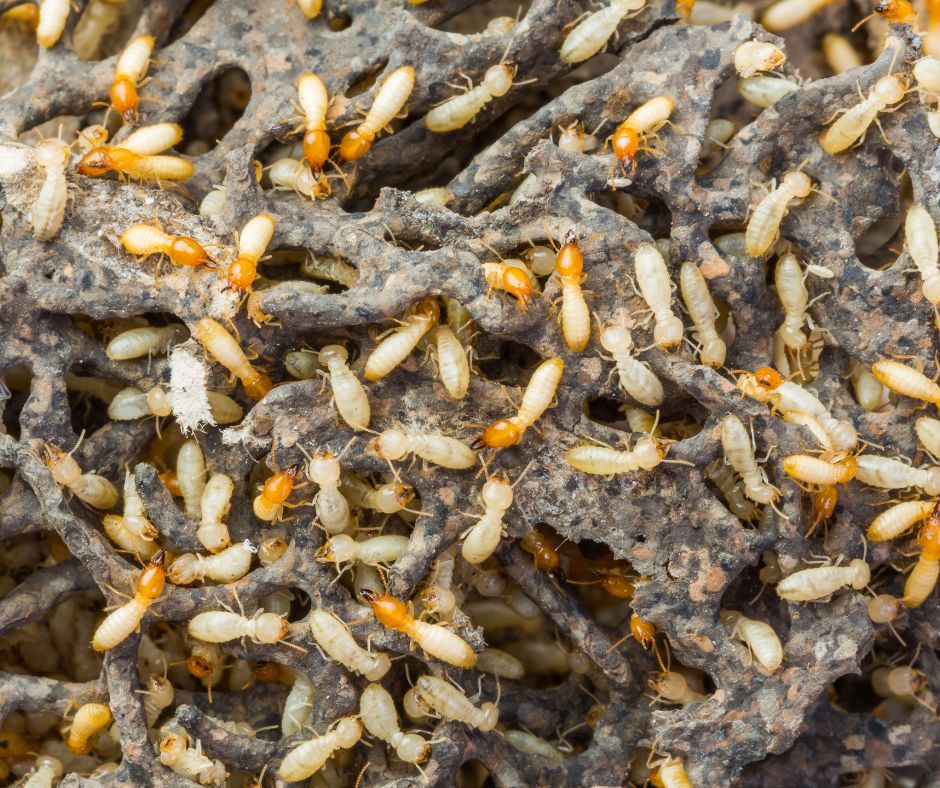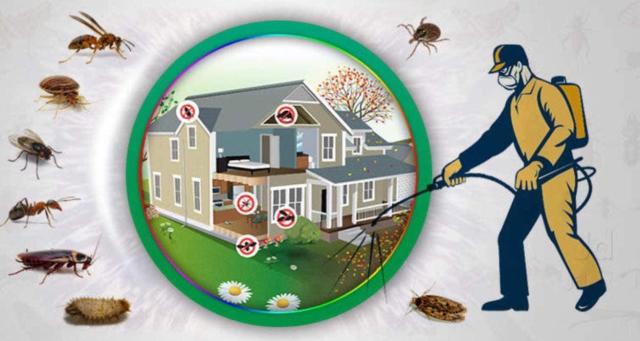Bonded Pest Control in Port Charlotte
Comprehensive Guide to Comprehending Pest Control Techniques and Their Therapy
Comprehending insect control methods is vital for effective administration of unwanted microorganisms that present risks to wellness, farming, and property. What variables should be taken into consideration when choosing the appropriate bug control technique for a particular scenario?
Introduction of Insect Control Techniques
Parasite control approaches incorporate a selection of techniques developed to take care of and get rid of unwanted microorganisms that can damage human wellness, agriculture, and residential or commercial property. Effective bug monitoring is crucial for keeping the honesty of ecosystems and making certain the security of food products. These methods can be broadly classified into three key methods: social, mechanical, and organic controls.

Cultural control involves customizing farming techniques or ecological problems to lower pest establishment and recreation. This method consists of plant turning, cleanliness, and choosing pest-resistant plant selections. Mechanical control relies upon physical barriers or devices to stop insect access or directly remove them. Examples include traps, webs, and hand-picking dangerous pests.
Biological control makes use of all-natural predators, bloodsuckers, or virus to manage pest populations. This method emphasizes eco-friendly balance and can consist of presenting beneficial insects, such as ladybugs or predacious nematodes, to manage pest existence.
Integrated pest monitoring (IPM) integrates these approaches, making use of an alternative method that highlights prevention, tracking, and accountable management. By using a mix of these methods, pest control can be more lasting and efficient, decreasing dependence on chemical interventions while safeguarding human wellness and the environment.

Chemical Parasite Control Solutions
A variety of chemical parasite control services are available, giving effective options for managing bug populations when various other methods might drop brief. These services largely include insecticides, herbicides, fungicides, and rodenticides, each made to target specific bugs while minimizing damage to non-target microorganisms.
Insecticides are particularly efficient versus an array of insects, including ants, roaches, and termites, and can be identified as contact or systemic agents. Get in touch with pesticides eliminate insects on call, while systemic pesticides are soaked up by plants, making them toxic to insects that prey on them. Herbicides are utilized to manage unwanted plants, whereas fungicides are vital for taking care of fungal illness that can harm plants and decorative plants.
Additionally, integrated pest administration (IPM) principles ought to be used, incorporating chemical services with cultural, mechanical, and biological techniques for lasting bug control. This alternative method not only enhances pest monitoring efficiency but additionally decreases potential ecological influences connected with chemical usage.
Organic Pest Control Techniques
Biological pest control techniques offer an eco-friendly choice to chemical techniques by utilizing natural predators, bloodsuckers, or pathogens to handle pest populaces. This approach leverages the eco-friendly connections in between organisms, advertising a balanced ecosystem while minimizing chemical deposit in the environment.
Among the most usual organic control approaches involves the intro of natural adversaries. For example, ladybugs are utilized to manage aphid populaces, while parasitic wasps can target caterpillars and other parasites. These all-natural predators properly reduce pest numbers without hurting helpful bugs.
Furthermore, microbial agents such as microorganisms, fungis, and infections are made use of to infect and eliminate details bugs. Bacillus thuringiensis (Bt), a normally occurring bacterium, is extensively utilized to manage caterpillars and various other larvae, showcasing the performance of microbial bug control.

Physical and Mechanical Methods
Frequently used in incorporated pest monitoring strategies, physical and mechanical approaches function as efficient tools for regulating parasite populations without making use of chemicals. These techniques depend on physical obstacles, catches, and other mechanical tools to stop or remove insects, making them environmentally pleasant choices.
Physical approaches include using obstacles such as insect netting, screens, or row covers that literally block bugs from accessing plants. This is especially helpful in agricultural see here setups where crop security is vital. Additionally, habitat control, such as getting rid of debris and standing water, can reduce parasite reproducing websites, consequently reducing infestations.
Mechanical methods incorporate traps, which can be developed to record particular bugs. Sticky catches and pheromone traps prevail instances that lure and maintain bugs, helping with surveillance and control. Vacuuming is an additional mechanical method, efficient for getting rid of bugs from indoor atmospheres, especially in instances of infestations.
Preventative Insect Administration Strategies
Reliable preventative pest management techniques are necessary for maintaining healthy atmospheres and lessening pest-related problems prior to they arise (Pest Control in Port Charlotte, FL). These techniques concentrate on aggressive you can try this out measures that decrease the possibility of insect invasions by resolving the origin

One more vital strategy entails proper landscape design techniques (Pest Control in Port Charlotte, FL). Maintaining vegetation cut and away from structures can reduce harborage locations for insects. Carrying out integrated parasite monitoring (IPM) strategies that include checking pest populations and utilizing biological controls can cultivate a balanced ecological community that naturally reduces pest numbers.
Education and training for team and homeowners on recognizing early indications of parasite activity are likewise vital components of an efficient preventative program. By cultivating an atmosphere of understanding and alertness, organizations and house owners can greatly improve their bug monitoring efforts and secure their rooms against future infestations.
Final Thought
Finally, reliable insect control requires a multifaceted technique that integrates chemical, biological, and mechanical techniques. Using an Integrated Pest Management (IPM) framework allows for the lasting monitoring of bugs while minimizing blog here ecological impact. Preventative strategies further boost the efficacy of these techniques, making certain lasting defense of health and wellness, agriculture, and property. Inevitably, a thorough understanding of these diverse parasite control strategies is crucial for accomplishing effective end results in parasite monitoring efforts.